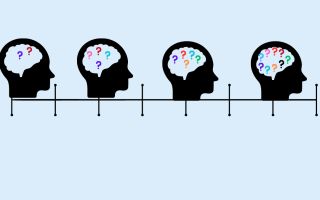Bipolar Disorder
Treating Mental Illness as a Chronic Disease
Reimagining care in psychiatry.
Posted March 24, 2023 Reviewed by Tyler Woods
Key points
- Medical conditions like autoimmune and metabolic disorders are associated with systemic dysfunction that can produce psychiatric symptoms.
- Patients with major mental illnesses are at a substantially greater risk of chronic illnesses.
- Patients with major depressive disorder are more likely to experience a host of non-psychiatric comorbidities.

Within the last 100 years, advances in the field of medicine have been nothing short of miraculous. Our understanding of disease, anatomy, and the intricacies of the central nervous system has grown in leaps and bounds, and our ability to quickly diagnose and cure a multitude of diseases would have been considered a divine intervention even 50 years ago. To a clinician practicing a few decades ago, fields of research like pharmacogenomics and neurogenetics would seem more like science fiction than reality.
Acute v. Chronic Disease
As groundbreaking and intellectually fecund as these areas of inquiry are, these medical marvels don’t always translate into a better experience for our patients. No doubt, an infection that may have been a death sentence for someone 100 years ago can now be cured with antibiotics and congenital defects that may have seriously impacted or even shortened a child’s life can now be corrected by surgery. However, our collective ability to remedy acute diseases overlooks the fact that patients with chronic diseases oftentimes may not be properly diagnosed and consequently struggle with their symptoms in the long run, which can impair their quality of life.
As an example, the Washington Post featured an article about the surge in patients with postural orthostatic tachycardia syndrome (POTS), for which the most prominent symptom is a surge in heart rate upon standing that causes dizziness, brain fog, and fainting. One of the many complications that appears to arise following acute SARS-CoV-2 infection, POTS is distinct from long covid, but the two have a lot in common. First and foremost, autonomic nervous system dysfunction is a crucial part of the pathophysiology of each condition. Secondly, patients typically experience psychiatric symptoms like anxiety and depression in addition to their more apparent physical symptoms. Finally, patients oftentimes spend months or even years going from one specialist to another trying out treatments that provide some symptomatic improvement, but oftentimes struggle with side effects. At best, treatments make life more manageable, but the symptoms may never fully remit.
For anyone who has had a chronic condition, this should sound familiar. No matter if it’s fibromyalgia, long covid, POTS, or complications associated with Lyme disease, we are, at best, only able to treat their symptoms rather than their etiologies. This is not because medicine is a racket. Rather, it’s because:
- At times, medical science cannot fully explain the cause of the disease or the reason behind the chronicity of the condition and, consequently, it can’t be corrected or cured; or
- The patient is technically dealing with a syndrome (i.e., a group of symptoms that consistently occur together) that may have multiple etiologies that all need to be identified and addressed; or
- The patient’s symptoms are due to irreversible damage to organs or systems.
Chronic Illness and Mental Illness
Treating mental illness presents many of the same difficulties. There’s oftentimes no clear physiological cause for the dysfunction, and symptoms may arise because of any combination of social, environmental, psychological, genetic, or neurobiological problems, and this combination changes for each individual even if the symptoms appear to be the same. To illustrate this point, consider the fact that there is not a bipolar I disorder gene that gets accidentally turned on that we can just turn off. Despite pharmacological interventions, and, at times, enthusiasm about novel drugs, no one pill can fix all imbalances in the brain, since there is more to these conditions than just neurochemical abnormalities.
To add to these clinical difficulties for psychiatrists, the signs and symptoms of disease are tied to mental states over which many people believe they have full control. This presumption of control is particularly strong in those who have never experienced something as unnerving and unexpected as a panic attack or have never seen another in the throes of a psychotic episode or dysthymia. To tell them to snap out of it is like telling a patient’s arm to stop bleeding. Neither one is going to be effective because, in both cases, we are witnessing physiobiological phenomena, only in the latter case the physiobiological phenomena are being translated through the CNS and presented as pathological behavior.
Reimagining Care for Mental Illness
If we hope to treat mental illness, we cannot separate the mind and the body. We cannot compartmentalize a nebulous “psyche” and the corporeal neurological circuitry beneath. Moreover, we cannot separate that neurological circuitry in the CNS from the systems that affect the rest of the body, including the enteric nervous, immune, or endocrine systems. Dysfunction in one is likely to cause dysfunction in the other, possibly through an inflammatory pathway that crosses the blood-brain barrier and leads to neuroinflammation. The fact that patients with psychotic and mood disorders are more likely to experience a host of non-psychiatric comorbidities, such as worsening metabolic syndrome and increased incidence of obesity, diabetes, and numerous other autoimmune disorders, speaks volumes. In fact, patients with major mental illnesses are at a substantially greater risk of chronic illnesses, including cardiovascular disease and cancer.
Instead of compartmentalizing, we should instead be looking at the whole patient. Psychiatry has an interesting history of being at the crossroads of psychology and neurology, and only over time came to understand the reciprocal interactions between the brain and the rest of the body. Fortunately, there has been more progress in this area recently, but we need to begin to pay more attention to these complex brain-body interactions, as there is a growing body of evidence that medical conditions like autoimmune and metabolic disorders are associated with systemic dysfunction that affects the CNS and causes psychiatric symptoms. Therefore, we need to break down the barriers between specialists rather than keep to our respective domains to ensure our patients receive the best care possible.


